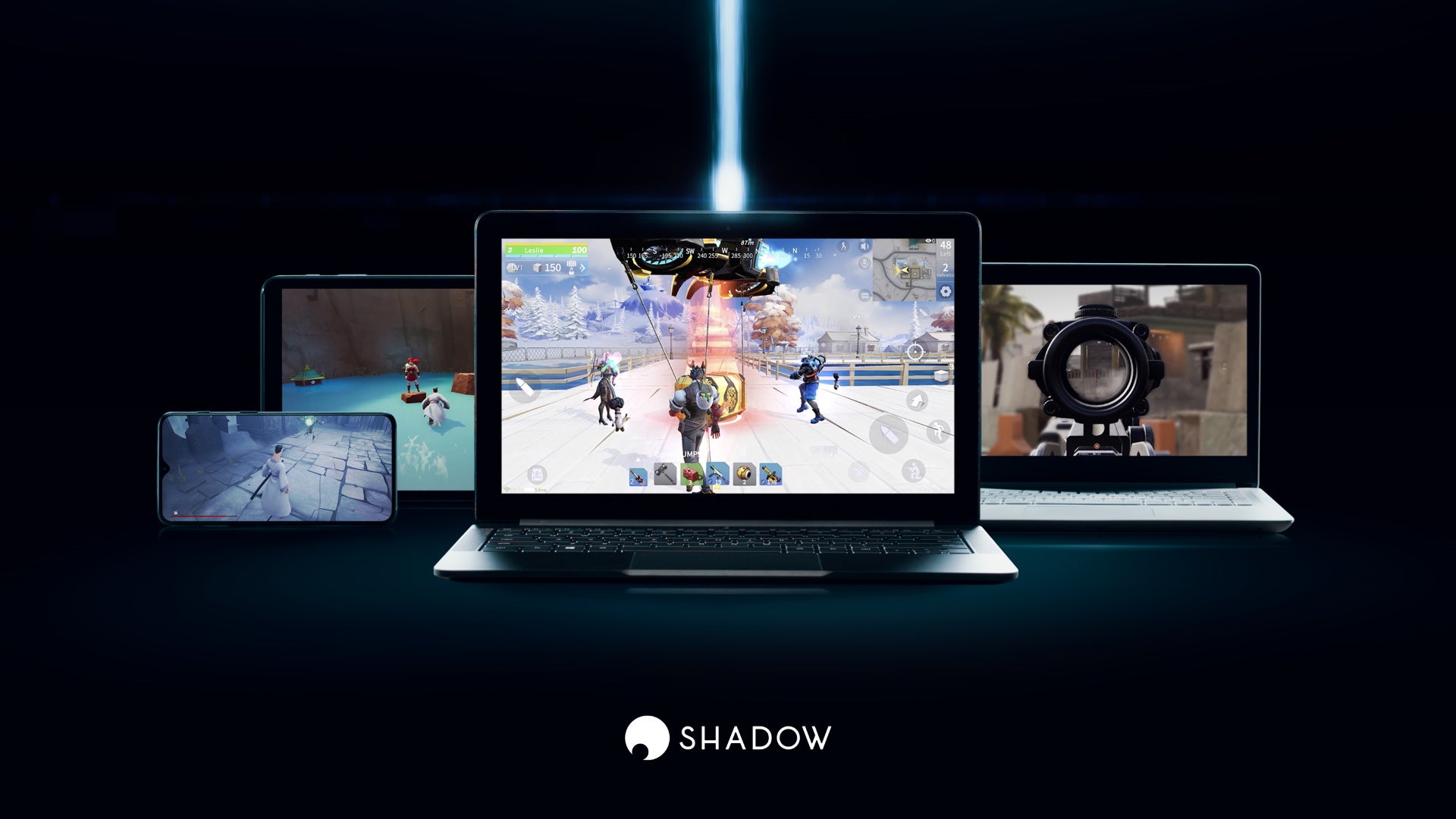Windows 11 is now out and about, gradually making its way to Windows 10 users as an optional free update. Sadly, Microsoft’s latest operating system isn’t have the most auspicious of starts: besides headline gaming features like DirectStorage not technically being usable yet, cloud gaming platform Shadow is actively discouraging users from updating their systems.
If you’re unfamiliar, Shadow works differently to most cloud gaming services in that rather than paying to access a library of games, you’re effectively getting an entire cloud-based PC, complete with the Windows 10 desktop and the ability to install other programs or fiddle around with Windows settings. This extends to installing Windows 11 on your cloud PC, though Shadow – who survived bankruptcy earlier this year – would really rather you didn’t.
In an email to subscribers, Shadow anticipated technical problems with the OS, and explained they were still working on optimising the service for it. The message reads: “Today, Microsoft will officially launch Windows 11. Its release will be gradual, with potential bugs and issues early on. With this in mind, we will monitor the initial performances of Windows 11 before taking any action. This will allow us to guarantee strong performances and an overall high quality of service when we do make the eventual transition to Windows 11. Please do not update your Shadow to Windows 11 until further notice.”
“In the meantime, our teams continue to run tests and developments to ensure Shadow is fully optimized for Windows 11. You will be notified via email when Windows 11 is ready to be rolled out on Shadow.”
There’s nothing actually stopping Shadow users from updating to Windows 11, and in fact it’s been possible to install the pre-release Windows Insider Program version as well. I’m still waiting for Microsoft to roll out the update on my testing rig, so can’t personally attest to the amount of bugs, though obviously this is far from an endorsement on Shadow’s part. They’ve elaborated further in a Windows 11 FAQ.

In fairness, there are plenty of signs that Windows 11 might not be as gaming-friendly as Microsoft have suggested, at least in these early days. Even if you meet the somewhat arcane Windows 11 system requirements, the OS is launching without any usable in-game support for DirectStorage, one of its biggest game-focused upgrades. The feature, which supposedly slashes game loading times, is apparently good to go on Windows 11’s end, but also needs games to support the DirectStorage SDK. No games currently do, and while developers are likely planning to add that support, you can’t currently get the benefit.
PC Gamer also discovered a troubling quirk of Windows 11, whereby its new Virtualization-Based Security (VBS) feature can actually cut gaming performance by up to 28%. VBS should be disabled by default when upgrading from Windows 10, except on enterprise versions, but it could potentially come enabled on Windows 11 prebuilds and laptops.
I’ll be taking a closer look at Windows 11 ASAP, though barring some kind of miraculous AutoHDR performance it’s looking increasingly unlikely that Microsoft’s latest becomes a must-have upgrade for PC gaming. Shadow may be onto something in suggesting we hold fire.
https://news.google.com/__i/rss/rd/articles/CBMiX2h0dHBzOi8vd3d3LnJvY2twYXBlcnNob3RndW4uY29tL3dpbmRvd3MtMTEtaXMtcm9sbGluZy1vdXQtYnV0LWRvbnQtdXBkYXRlLXlvdXItc2hhZG93LWNsb3VkLXBj0gEA?oc=5
2021-10-05 11:31:02Z
52781914348299
Tidak ada komentar:
Posting Komentar